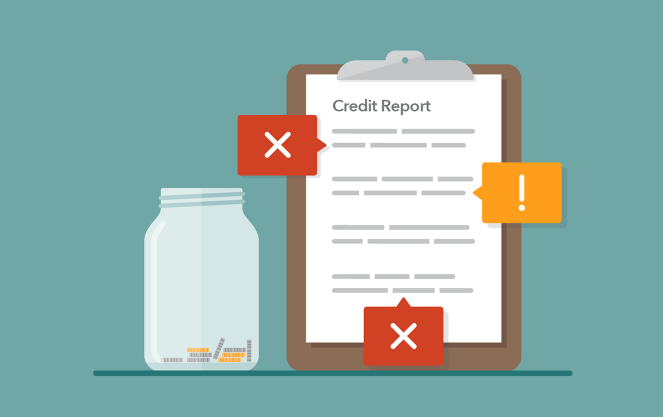
Understanding Credit Reports and Common Errors
Maintaining a pristine credit report is more important than ever in today’s fast-paced financial environment. A small oversight can lead to inaccuracies that have detrimental effects. Such errors are especially consequential when they impair one’s ability to acquire a credit error security clearance, which is sometimes required for employment in particular government or military positions. This comprehensive guide aims to equip you with the knowledge and tools to tackle credit report errors head-on, preserving your access to the opportunities you deserve.
Credit reports are intricate documents that provide a snapshot of your financial behavior. They include personal information, credit accounts, inquiries, and public records such as bankruptcies or foreclosures. Common errors on these reports range from misspelled names to outdated account statuses, and each has the potential to unjustly affect your credit score. Some errors are clerical, while others, such as accounts you don’t recognize, could indicate identity theft.
The Relationship Between Credit Scores and Opportunities
The impact of a credit score reverberates across various aspects of one’s life. Lenders, landlords, and even employers often use this score to infer financial responsibility. A single digit can dictate the terms of a mortgage or determine if you’re trusted with corporate finances. This is why an error that leads to an unjustifiably low score could unjustly exclude you from opportunities and require urgent rectification.
Steps to Take When You Spot an Error on Your Credit Report
Upon discovering a discrepancy, initiating the correction process promptly is crucial. You should contact the credit reporting agency immediately; they are legally obliged to investigate your dispute. Supply them with any pertinent evidence to substantiate your claim, such as payment records or court documents. Clear, concise, and well-documented communication is critical to achieving a resolution in your favor.
Formulating a Dispute
Your dispute letter should outline each error in detail and include photocopies of supporting documentation. Furthermore, insist on a return receipt to confirm that your correspondence has been received. A meticulous approach to contesting errors aids in ensuring their successful resolution, thereby restoring the integrity of your credit report.
The Role of Dispute Resolution in Corrections
Dispute resolution is a structured process overseen by credit bureaus to address and amend inaccuracies. Following your dispute, the credit bureau will conduct an inquiry with the data furnisher, which could be a lender or financial institution, to verify the contested information. A successful dispute can lead to the removal or correction of the error and may result in an improved credit score.
Long-term Credit Health: Proactive Strategies
A proactive mindset is essential for maintaining a healthy credit profile. Regularly check your credit report for inaccuracies, keep records of your financial transactions, and be mindful of the signs of identity theft. A vigilant approach to credit management can prevent minor errors from escalating into significant impediments. Furthermore, the Federal Trade Commission’s resources can provide additional guidance on managing credit disputes.
Professional Assistance: When to Seek Legal Advice
While self-help options are often sufficient, there are scenarios where professional legal guidance is advisable. Recurrent inaccuracies, issues with identity theft, and errors resulting from mixed credit files may necessitate the expertise of a credit attorney. Not only can these professionals advocate on your behalf, but they can also navigate the complexities of credit law to safeguard your rights.
Protecting Your Identity: Preventive Measures
Identity protection is a cornerstone of credit accuracy. Safeguarding your social security number, responsibly managing your personal data, and being vigilant about suspicious activities are all practical steps to prevent fraud. Implementing such preventive measures will considerably diminish the chances of falling victim to identity theft and its implications for your credit report.
Staying Updated: Regular Credit Monitoring
Vigilant credit monitoring is an early warning system, bringing unauthorized activities to your attention before they escalate. Subscribing to a credit monitoring service that provides timely alerts about changes to your credit report allows you to act swiftly in the face of potential fraud or errors, ensuring that your credit profile reflects your financial responsibility.
